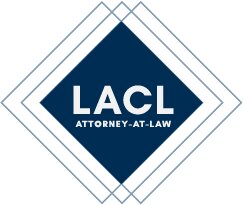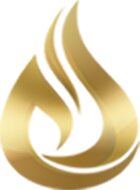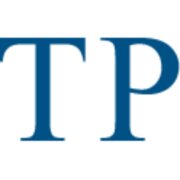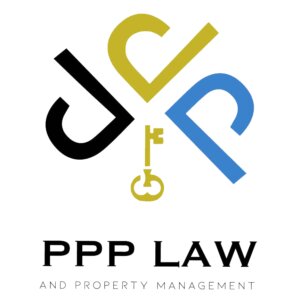Best Sanctions & Export Controls Lawyers in Huai Khwang
Share your needs with us, get contacted by law firms.
Free. Takes 2 min.
List of the best lawyers in Huai Khwang, Thailand
About Sanctions & Export Controls Law in Huai Khwang, Thailand
Sanctions and export controls refer to the rules and regulations that govern the transfer of goods, technologies, and services across borders, with an emphasis on restrictions for certain countries, individuals, or types of products. In Huai Khwang, which is a district in Bangkok, Thailand, these laws apply to individuals and businesses engaged in international trade or business activities involving foreign entities. The aim of sanctions and export controls is to promote national security, prevent the spread of sensitive technologies, fulfill international obligations, and support foreign policy goals. Whether you are a local business owner, a foreign entrepreneur, or an individual traveler, these regulations can potentially impact your activities.
Why You May Need a Lawyer
There are several scenarios in Huai Khwang where seeking legal advice on sanctions and export controls becomes essential:
- You run a business involved in importing, exporting, or re-exporting goods, software, or technology that could fall under export restrictions.
- You are approached by or plan to enter into agreements with partners, suppliers, or customers from countries subject to Thai or international sanctions.
- You are uncertain if your trade practices comply with Thai laws or international obligations.
- Your shipment has been detained by customs or other regulatory agencies for suspected violations.
- You have received notice of an investigation or penalty by Thai authorities related to sanctions or export control violations.
- You want to participate in international business but are unsure of the regulatory risks.
- You need assistance in obtaining the proper licenses or permits for exporting controlled goods or services.
Legal advice ensures compliance, reduces business risks, and can prevent costly legal disputes or penalties.
Local Laws Overview
Thailand’s export control framework is based on several national laws and international agreements. In Huai Khwang, as anywhere in Thailand, the following are especially relevant:
- The Trade Controls on Weapons of Mass Destruction Related Items Act B.E. 2562 (2019) governs the export, transit, and transshipment of controlled goods that could be used for military or proliferation purposes.
- Various Ministry of Commerce regulations manage the export, import, and transit of specific product categories, including dual-use items, chemicals, arms, and sensitive technology.
- The Customs Act dictates obligations concerning goods declaration, inspection, and duty collection, including penalties for evasion or illegal transit.
- Thailand adapts its policies in respect of United Nations Security Council sanctions, and such international rules may impact activities involving sanctioned individuals, entities, or countries.
- Exporters may need to obtain licenses or authorizations before sending certain goods, such as advanced electronics, software, or industrial chemicals, outside Thailand.
Failure to comply with these laws in Huai Khwang can result in shipment seizures, administrative fines, criminal charges, and reputational damage.
Frequently Asked Questions
What are export controls?
Export controls are regulations governing the export, re-export, or transfer of specific goods, software, and technologies to other countries, especially items with potential military or dual-use purposes.
What are sanctions?
Sanctions are restrictions set by the Thai government or international organizations that prohibit or limit transactions with certain countries, groups, or individuals, often for political, security, or human rights reasons.
Do export controls and sanctions apply to individuals and small businesses in Huai Khwang?
Yes, export controls and sanctions apply to all entities, including individuals and small businesses, engaging in activities covered by these regulations. Compliance is necessary regardless of business size.
Which goods or technologies are usually controlled?
Typical controlled goods include arms, military equipment, chemicals, electronics, software with encryption, nuclear materials, and certain industrial machinery that could be used for military or proliferation purposes.
What are the consequences of violating export controls or sanctions in Thailand?
Violations can result in customs seizures, administrative fines, criminal prosecution, imprisonment, and loss of business licenses. Serious breaches can also impact future trade opportunities.
Do I need a license to export items from Huai Khwang?
Some goods and technologies require an export license or prior permission, depending on their classification. A legal advisor can help you determine if your products fall under these regulations.
How do I know if my business partners are subject to sanctions?
It is important to conduct due diligence. Thai authorities can provide guidance, and legal experts can perform checks using updated lists of sanctioned entities and individuals.
Who enforces export controls and sanctions in Thailand?
The main agencies are the Ministry of Commerce, Customs Department, and the Ministry of Foreign Affairs. They are responsible for licensing, monitoring, and enforcement.
Can exporters in Huai Khwang ship goods to countries under international sanctions?
Generally, shipping goods to or engaging in business with sanctioned countries or entities is prohibited unless specifically authorized. Seeking legal advice is crucial before considering such trade.
What should I do if my shipment is detained by Thai customs?
Contact a legal professional experienced in sanctions and export control matters immediately. They can help identify the reason for detention, assist with documentation, and represent you with authorities.
Additional Resources
If you need more information or support regarding sanctions and export controls in Huai Khwang, consider the following resources:
- Ministry of Commerce - Department of Foreign Trade (DFT): The primary agency overseeing trade controls, export licensing, and compliance consultations.
- Customs Department: Handles enforcement at ports and airports and can address shipment queries.
- Ministry of Foreign Affairs: Provides updates on international sanctions adopted by Thailand.
- Royal Thai Police: Can assist in cases relating to investigation and enforcement of criminal matters.
- Local law firms in Huai Khwang specializing in international trade or customs law.
Next Steps
If you suspect that your activity in Huai Khwang may be affected by sanctions or export controls, the following steps will help you protect your interests:
- Consult with a qualified lawyer or legal firm specializing in international trade, customs, or sanctions law.
- Gather relevant documents, such as contracts, shipping papers, product classifications, and correspondence with foreign partners.
- Request a review of your business practices to assess compliance with local and international requirements.
- If you are facing enforcement action or an investigation, respond promptly and through your legal representative.
- Stay informed about changes in relevant laws by regularly checking updates from government agencies or reputable legal advisors.
Taking early and informed action with the help of professionals is vital in mitigating legal risks and ensuring successful international business operations from Huai Khwang, Thailand.
Lawzana helps you find the best lawyers and law firms in Huai Khwang through a curated and pre-screened list of qualified legal professionals. Our platform offers rankings and detailed profiles of attorneys and law firms, allowing you to compare based on practice areas, including Sanctions & Export Controls, experience, and client feedback.
Each profile includes a description of the firm's areas of practice, client reviews, team members and partners, year of establishment, spoken languages, office locations, contact information, social media presence, and any published articles or resources. Most firms on our platform speak English and are experienced in both local and international legal matters.
Get a quote from top-rated law firms in Huai Khwang, Thailand — quickly, securely, and without unnecessary hassle.
Disclaimer:
The information provided on this page is for general informational purposes only and does not constitute legal advice. While we strive to ensure the accuracy and relevance of the content, legal information may change over time, and interpretations of the law can vary. You should always consult with a qualified legal professional for advice specific to your situation.
We disclaim all liability for actions taken or not taken based on the content of this page. If you believe any information is incorrect or outdated, please contact us, and we will review and update it where appropriate.













